Event website
Developer
WHAT IS a Event Website?
An event website serves as a comprehensive online hub meticulously crafted to promote, manage, and elevate events effectively. It is a crucial tool for event organizers who aim to attract a broader audience and ensure smooth execution. The core objective of such a site is to deliver detailed and essential information about the event, including specifics such as the date, location, agenda, speakers, and registration options.
These platforms typically boast a range of robust features, such as interactive calendars, streamlined online registration forms, rich media galleries, and seamless social media integration. An event management platform further enhances this by offering a user-friendly website builder, where users can create an account to manage and customize their event website. Customization options and analytics tools simplify the event planning process. An event website builder enables users to create custom event-specific websites quickly and easily, with user-friendly design capabilities and customization options to consolidate event information in one place.
For advanced users, the ability to edit HTML allows for deeper customization, while most users can personalize their site without any coding skills. You can upload branded content, such as images and videos, to match your event's visual identity. Media galleries allow you to upload images and videos to showcase the event, making it visually engaging.
Furthermore, they often provide user-friendly navigation and are optimized for mobile devices to reach a wider audience. Many platforms also offer a dedicated app, enabling organizers to manage event operations, guest check-in, and ticket scanning on any device. Additionally, they may offer personalized reminders, networking opportunities, and post-event content for attendees. These elements work in concert to boost user engagement, enhance the overall event experience, and ensure effortless access to all event-related information. By harnessing these capabilities, organizers can not only elevate participant satisfaction but also gather valuable insights through analytics to improve future events.
Principles Of Effective Event Website Design
A successful event website starts with a design that is both visually appealing and highly functional. Simplicity, clarity, and consistency are the cornerstones of effective event website design. Your site should immediately communicate the event’s purpose, schedule, and ticketing options, making it easy for attendees to find essential information at a glance. With a custom event website, organizers have the flexibility to fully customize every aspect of the site, ensuring it matches the event’s brand and unique requirements. Modular layouts and intuitive navigation help guide visitors seamlessly through the registration process, while strategic use of keywords like “event website” and “custom event” can boost your site’s visibility on search engines. By focusing on these principles, you create a site that not only attracts more event registrations but also leaves a lasting impression on your audience.
User Experience & Accessibility Considerations
Delivering a positive user experience is vital for any event website. Your site should be responsive, adapting smoothly to desktops, tablets, and mobile devices so attendees can access event details and complete registrations from anywhere. Easy navigation, clear calls to action, and a straightforward registration process are essential features that help drive ticket sales and event registrations. Accessibility should also be a top priority—features like adjustable font sizes and high-contrast modes ensure that everyone, regardless of ability, can interact with your website. By prioritizing user experience and accessibility, you not only make it easier for attendees to register and participate, but you also demonstrate a commitment to inclusivity, which can enhance your event’s reputation and increase overall registrations and sales.
Visual Branding & Consistency
Consistent visual branding is key to building trust and recognition for your event. Your event website should reflect your event’s identity through cohesive use of colors, fonts, and imagery. This consistency helps attendees instantly connect with your brand and sets the tone for the event experience. Leveraging customizable templates and user-friendly design tools, organizers can create a polished, professional website that stands out. By maintaining a unified look and feel across all pages, you reinforce your brand’s message and make your event more memorable. Strong visual branding not only attracts attendees but also supports your marketing efforts, ensuring your event website becomes a powerful tool for promotion and engagement.
Additional INformation on
Event website design
A good event website is essential for promoting and managing events effectively. It serves as a central hub for information, provides a seamless user experience, and helps increase ticket sales and event registrations. Here are the key features of a good event website:
Definition and Purpose of an Event Website
An event website is a dedicated online platform designed to promote and manage events, conferences, and gatherings. At the beginning, careful planning and initial setup are crucial to ensure your event website is effective and meets your goals. Its primary purpose is to provide a centralized hub for event information, registration, and ticket sales, making it easier for attendees to access and engage with the event. The setup process is straightforward and user-friendly, allowing organizers to get started quickly. By consolidating all essential details in one place, an event website ensures that potential attendees have all the information they need to make informed decisions about participating in the event. No coding skills are required to create or customize an event website.
Importance of Having a Professional Event Website
Having a professional event website is crucial for event planners and organizers. For business events, a professional website is especially important as it supports business goals, streamlines operations, and helps present your business in the best light. It not only enhances the overall event experience but also helps to establish credibility and build trust with attendees. A well-designed event website can increase event visibility, boost registration rates, and provide a seamless experience for attendees. In today’s digital age, a professional event website serves as a powerful marketing tool, showcasing the event’s value and attracting a larger audience.
Benefits of Using an Event Website for Event Management
Using an event website for event management offers numerous benefits, including:
- Centralized Event Information and Updates: All event details are conveniently compiled in one central location, making it incredibly easy for attendees and guests to stay informed and up-to-date on all aspects of the event. This streamlined access ensures that everyone can quickly find the information they need without any hassle.
- Easy Registration and Ticket Sales: A streamlined registration process, combined with a secure ticket sales system, greatly simplifies the overall attendee experience by making it more efficient and user-friendly. The website allows organizers to efficiently collect event registrations, ensuring that participants can easily navigate through the registration steps and feel confident in the security of their purchasing transactions.
- Improved Attendee Engagement and Experience: Interactive features and personalized content play a crucial role in significantly enhancing attendee satisfaction. By engaging participants in a more meaningful way, these elements create a more immersive experience that caters to individual preferences and interests. Event websites also help manage attendee information and guest preferences, further personalizing the experience and improving communication.
- Enhanced Event Promotion and Marketing: The website serves as a vital marketing hub, effectively driving traffic and significantly increasing the visibility of events. This centralized platform not only attracts a diverse audience but also enhances overall engagement, ensuring that events reach the right people and receive the attention they deserve.
- Simplified Event Planning and Management: Event management software integrated into the website significantly streamlines the planning and logistics involved in organizing events. By centralizing various aspects of event coordination, it simplifies tasks such as scheduling, guest registration, and resource allocation, ensuring a more efficient and organized experience for event planners and attendees alike. These platforms streamline operations, allowing organizers to focus on core event activities rather than administrative tasks.
- Increased Event Visibility and Credibility: A well-designed and professional-looking event website significantly enhances the overall credibility of the event, making it more appealing and trustworthy to potential attendees. By presenting information in an organized and visually engaging manner, a polished website can effectively capture the interest of visitors, ultimately attracting a larger audience and encouraging more people to participate in the event.
- Dedicated Support: Many event management platforms offer dedicated support teams available via chat, email, or phone to assist organizers and attendees, ensuring smooth setup, troubleshooting, and ongoing assistance throughout the event process.
Key Features of a
Good Event Website
A good event website is essential for promoting and managing events effectively. It serves as a central hub for information, provides a seamless user experience, and helps increase ticket sales and event registrations. A top event website should enable you to sell tickets directly through the site, manage different ticket types, and track revenue generated from ticket sales. Additionally, offering an interactive floor plan allows attendees to select their preferred seats or areas, enhancing the overall event experience. Here are the key features of a good event website:
Clear Event Details
A good event website should clearly display the event name, date, time, location, and purpose. This information should be easily accessible and visible on the homepage. The event details should also include a concise description of the event, its objectives, and what attendees can expect to gain from it. An event registration website is crucial for providing clear and branded registration pages, ensuring that the design elements such as colors and fonts align with the event's identity. Additionally, the website should provide information on the event schedule, including the timing of sessions, breaks, and networking opportunities.
Agenda & Schedule
A well-structured agenda and schedule are crucial components of a good event website. The agenda should outline the event program, including the names of speakers, session titles, and timings. The schedule should be easy to navigate, allowing attendees to plan their day and prioritize sessions. It’s also essential to include a feature that allows attendees to create a personalized schedule, which can be accessed on their mobile devices. A custom event approach can further enhance this by providing tailored schedules and agendas that meet specific branding and functional needs.
Speaker & Performer profiles
A good event website should provide detailed profiles of speakers and performers, including their names, titles, organizations, and brief biographies. This information helps attendees understand the expertise and credentials of the speakers and performers, which can increase their interest in attending the event. The profiles should also include photos, social media links, and other relevant information that can help attendees connect with the speakers and performers.
Venue information
The event website should provide detailed information about the venue, including its location, address, and map. This information should be easily accessible and visible on the homepage. The website should also include information on parking, transportation, and accommodation options for out-of-town attendees. Additionally, the website should provide information on the venue’s amenities, such as Wi-Fi, catering, and audio-visual equipment.
Sponsor & Exhibit Details
A good event website should provide information on sponsors and exhibitors, including their names, logos, and descriptions. This information should be easily accessible and visible on the homepage. The website should also include information on sponsorship and exhibition opportunities, including packages, pricing, and benefits. Additionally, the website should provide information on the exhibition layout, including the location of booths and the schedule of exhibition hours.
By incorporating these key features, event organizers can create a successful event website that provides a seamless user experience, increases ticket sales and event registrations, and promotes the event effectively.
YOUR LOCAL PARTNER IN
Event website Development
The 4 Key Benefits of Event Websites:
Amplified Visibility
An event website exponentially increases the reach of your event, making it accessible to a wider and more diverse audience. With carefully optimized content and strategic marketing efforts, the website can attract a significant number of visitors, thereby boosting overall attendance and engagement.
Efficient Communication
Equipped with features such as newsletters, blog updates, and social media integration, an event website ensures robust and consistent communication channels with attendees. It facilitates the timely and effective dissemination of crucial announcements and updates, keeping everyone informed and engaged.
Elevated Attendee Experience
By providing an intuitive user interface and comprehensive information, an event website significantly elevates the attendee experience. Features like interactive maps, personalized schedules, and detailed FAQ sections ensure participants have all the resources they need for a smooth and enriching event experience.
Insightful Data Collection
Event websites are instrumental in gathering valuable data through registration forms, surveys, and feedback mechanisms. This data serves as a powerful tool for future events, empowering organizers to deeply understand audience preferences and refine event planning strategies for maximum impact.
ARE YOU LOOKING FOR Event website Development?
Submit Your Information Below & Talk to a Event Website Developer
LET’S SEE IF OUR Event Development SERVICES IS A FIT
Ozment Media distinguishes itself as the premier choice for crafting exceptional event websites, offering unparalleled expertise and creativity. With a proven track record of delivering innovative and tailored solutions, Ozment Media seamlessly combines cutting-edge technology with a profound understanding of client needs. Their team of skilled professionals is unwaveringly dedicated to ensuring customer satisfaction, offering personalized services and expert guidance throughout the entire website development process.
By choosing Ozment Media, you are selecting a partner committed to elevating your event with a website that not only meets but surpasses your expectations, ensuring a memorable and impactful online presence. Their attention to detail and commitment to quality guarantee that your event website will stand out in today’s digital landscape, leaving a lasting impression on your audience.
Experience the difference of working with industry leaders who are as invested in your success as you are. With Ozment Media, you gain a collaborative partner who is dedicated to your vision and the success of your event, providing peace of mind and a seamless development journey.


